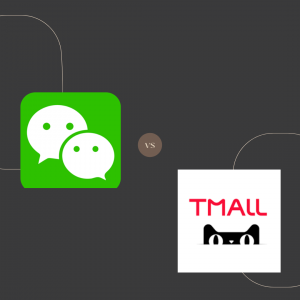When you grow up in a particular culture, its norms tend to become second nature to you. It can be easy to assume that people who don’t practice them are rude or lacking in manners. In light of that, behaving inappropriately when negotiating business deals in China can lead to all kinds of misunderstandings – and this might especially be the case for Australians who tend to come from a more laid-back and casual environment.
When negotiating Chinese business deals, proper etiquette and manners should never be overlooked or dismissed. Important matters include respect for hierarchy and seniority, modesty, relationship, patience, composure, and saving / giving face. This means you may need to address a number of things if misunderstandings are to be avoided.
Issues to address include:
- How to dress – attire does not need to be overly formal but should be business-like, simple and modest, and should not be brightly coloured. Examples include a plain suit for men and a high-neck blouse and skirt for women.
- Meetings and punctuality – make sure to come to meetings well prepared. Being on time to meetings is also very important. Many businesses also close between 12pm and 2pm, which you will need to consider when booking meetings.
- How to greet people – titles should be used rather than first names. Shaking hands is often used but should not be done forcefully.
- How to converse – contrary to what you might think, chit-chat is important. Prior to launching into business discussions, the Chinese will often talk about the weather or other light-hearted matters. It’s also important here to avoid political or negative topics. In business conversation, your speech should be low-key and moderate and without effusion and excess emotion. Note also that the Chinese rarely bluntly use the word “no” and may be more inclined to say something like “we are unsure at this stage.”
- Business card etiquette – have part of your business cards translated into Chinese, preferably in gold ink as gold is considered a prestigious colour. When handing out or receiving business cards, make sure to do so with both hands, and to spend some time looking at the other person’s card before putting it away. Always hand out cards to the most senior person first.
- Giving gifts – giving small inexpensive gifts (with an Australian theme) for your host is usually appropriate. Wrap your gift in ‘lucky colours’ such as red, gold and yellow. Again, use both hands to give your gift to the host.
- Body language – your body language should demonstrate attentiveness, respect and calmness. Be careful about hand-gestures – they should be minimised and if used, should not involve pointing or palm-up gestures.
- Mealtime etiquette – follow your host’s lead during meals. There may be multiple dishes on offer, so make sure to sample some of everything to show politeness and appreciation.
- Saving face – it’s always important to avoid causing embarrassment to yourself or your hosts, so make sure to be calm and composed at all times.
Lastly, relationship-building is very important in the Chinese business world, so be prepared to spend a considerable amount of time with your hosts, and to also undergo several rounds of negotiations before any deals are closed!
If you would like further insight on how to market successfully to China, contact our China Online Marketing division.











































































